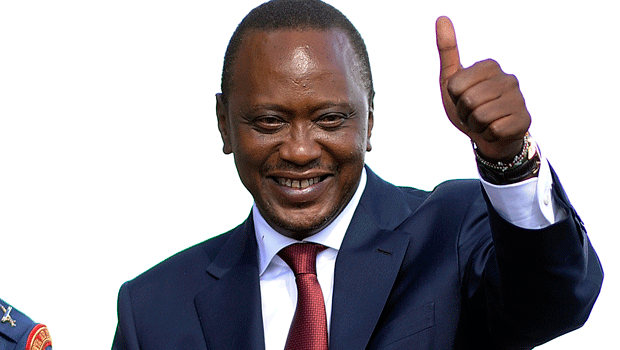
 Kenyan President Uhuru Kenyatta on Wednesday signed into a law a controversial Computer and cyber-crime law criminalizing fake news and online bullying.
Kenyan President Uhuru Kenyatta on Wednesday signed into a law a controversial Computer and cyber-crime law criminalizing fake news and online bullying.
The Computer Misuse and Cybercrimes Act is aimed at punishing cyber fraud and illegal hacking.
Under the new law, anyone who intentionally publishes false, misleading or fictitious data or misinforms, with or without any financial gain, commits an offense and shall, on conviction, be liable to a fine of up to $50,000 or imprisonment for up to 10 years.
The bill also imposes stiff fines and jail terms for hacking, computer fraud, and cyber-espionage, publishing child pornography or sending pornographic content via any electronic means.
The new law allows authorities to search and seize stored computer data, and to collect and intercept data real-time.
Rights activists have warned about an increasingly hostile and oppressive environment for journalists in Kenya.
New York-based media rights watchdog the Committee to Protect Journalists (CPJ) warned that the bill could criminalize free speech, “with journalists and bloggers likely to be among the first victims if it is signed into law”. Last week, CPJ urged President Kenyatta not to assent to the bill.
Article 19, a London-based freedom of expression watchdog, in an April statement, said the bill “contains several broadly defined offenses with harsh sentences that could dramatically chill freedom of expression online in Kenya”.
Kennedy Kachwanya, Kenyan bloggers association chairman says writers are foreseeing a situation where the government will in the future dismiss information published against them that is not positive as fake news.
